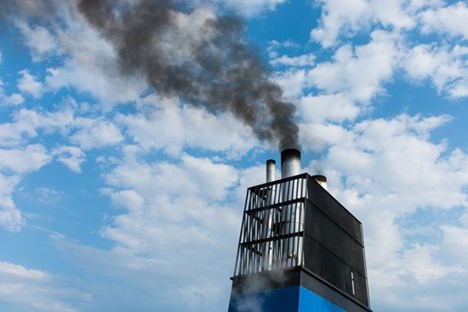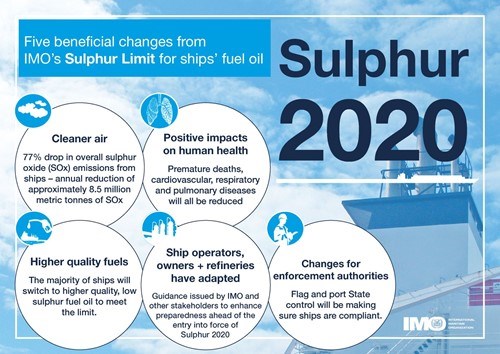As of 1 January the IMO launched the Sulphur Cap regulation, placing limits on sulphur emissions across the maritime world.

As we enter a new decade, the shipping industry is making new attempts to face the ever-increasing health and environmental problems caused by pollution. While ships are generally considered to be one of the most energy-efficient modes of trade transportation, they are used for 90% of world trade and carry over 10 billion tons of trade each year, producing as much carbon dioxide as the whole of Germany. So, as world trade increases and more ship capacity is needed, the industry must make headway to minimise its impact.
This month the IMO has enforced new regulations to move away from the main type of ‘bunker’ oil used by ships, heavy fuel oil, which is harmful to our crops, forests, oceans, and atmosphere. Research has also estimated that, at the current rate, air pollution from ships will contribute to more than 570,000 additional premature human deaths worldwide between 2020-2025. Hence, something needs to change.

Going forward, the Sulphur Cap will reduce the sulphur limit in fuel oil from 3.50% m/m to 0.50% m/m. This will create a 77% drop in overall sulphur emissions from ships, decreasing the annual amount by approximately 8.5 million metric tonnes and ultimately protecting the environment and improving air quality, particularly around ports.
Ships can comply by:
i. Using a compliant fuel oil with a sulphur content that does not exceed 0.50%
ii. If exceeding 0.50%, using an equivalent e.g. an Exhaust Gas Cleaning System (‘scrubber’)
iii. Using an alternative fuel e.g. LNG, methanol
iv. Using onshore power supply when at berth
Since environmental responsibility and reducing its carbon footprint is a priority for the IMO, as part of maritime industry, we offer an Environmental Vessel Efficiency (EVE) solution to help ships comply with new regulations. The application automates and enhances a ship’s existing reporting procedures, creating a shore-based database to monitor performance, reduce fuel costs, and facilitate environmental compliance, in order to assist in slowing the rapid progression of climate change.